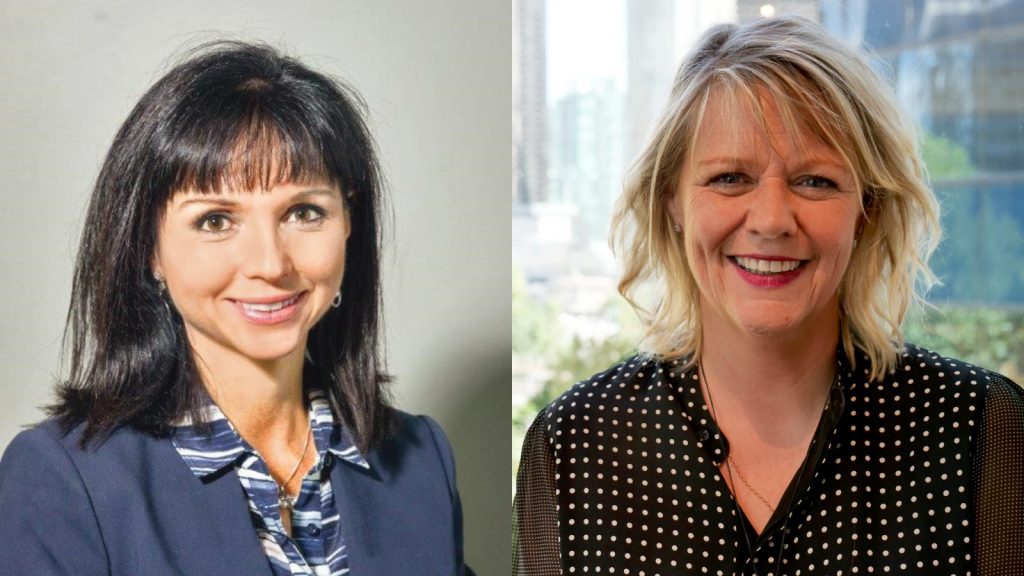Today we celebrate International Women’s Day. This year, the theme for International Women’s Day is “Women in leadership: achieving an equal future in a COVID-19 world”.
The Centre’s Board Chair Dr Lisa J. Griffiths and CEO Deb Tsorbaris sit down together to reflect on the theme and their leadership of the child and family services sector throughout, and in the recovery of, COVID-19.
What has been your role in leading and representing our sector throughout COVID-19?
Deb: It’s hard to put words to what we’ve been through over the last 12 months. I’ve seen some of the most bold, creative and collaborative attitudes over the last 12 months in our sector. I think it’s allowed us to do things we’ve never been able to do before: creating online communities, answering questions, helping the Department, developing intel and really coming together to solve problems that we probably could never have imagined we’d need to face.
How has the child and family services sector and workforce been impacted by COVID-19?
Lisa: We know that the people who work in our sector are very driven, and we’re very privileged to work in this sector. It’s now been 12 months since we had this massive disruption, and I think the first thing that impacted us was coming to terms with the fact that we’re a very relational sector. We do a lot of our leading, influencing and advocating through relationships. I’ve had many conversations with leaders about whether they felt they could still be as effective given they weren’t always meeting in person. We also know that our workforce is largely made up of women, many of whom have school-aged children, which meant they were having to become master jugglers in lockdown. Despite this, they never skipped a beat.
Deb: I feel so privileged to work alongside the workers in our sector who’ve done such an incredible job. I know we’ve heard stories about workers who’ve stood at the front gate of homes to hand over food, data packs and other supplies to support families while maintaining social distancing.
How has your leadership of the sector changed because of the pandemic and new working conditions?
Deb: We’re working in a different medium now, and I quite like it. We get to more people, and we get to create communities that are more democratic and inclusive. I get to see workers, managers and CEOs across the screen, previously I would see them maybe once a year but now I get to see them every couple of weeks. We get to have a closeness and a connection that I wouldn’t have been able to imagine before.
Lisa: The Centre has been such a conduit in that space. So much more information is being shared and so many more people are able to access that information. Many people previously wouldn’t have been able to ask questions of the Centre in a way that they can now. In an online medium, it’s easier for people to engage with leaders and ask questions when in person it may be quite daunting.
What do children and families need in a COVID Normal or post COVID world to achieve an equal future?
Lisa: In the early days of COVID-19, we saw reports of child abuse and neglect drop as children were less visible due to spending more time at home. As we come out of lockdown, we’re seeing those numbers pick back up again and we’re anticipating huge demand for services as we know JobSeeker and JobKeeper will be changing. That will put a lot of stress on families and often that leads to a range of behaviours such as drug and alcohol abuse.
Deb: It’s always good to look at these issues from a public health point of view. I’ve just been watching the UK Children’s Commissioner’s outgoing speech and she talks about children being left behind and how it only really takes a couple of things to topple a family into quite significant disadvantage, and COVID-19 is one of those things. Our advocacy in the coming months and years will focus on helping kids catch up in the areas where they may have fallen behind.
What advice do you have for future female leaders in the child and family services sector?
Deb: With the women that I work with, there are a number of qualities that shine through. Many of the female leaders in our sector are brave and talk about things that many people in the community don’t talk about. Child abuse and neglect are uncomfortable subjects but many of the female leaders in our sector talk about those things every day, so those issues are heard and we can try to get the responses we need. If we’re silent, things don’t change. Many of our female leaders are also very collaborative, and want to share information, knowledge and resources.
Lisa: That’s a nice segway into what International Women’s Day is about this year, we’ve learned so much throughout COVID-19 about the use of data and evidence and how our future leaders can use that in a powerful way to increase their capacity for really effective decision making.






